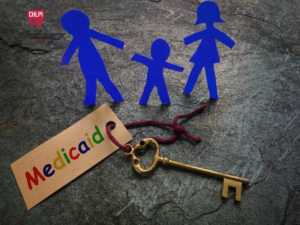The human papillomavirus (HPV) is the most common sexually transmitted infection in the United States, and can lead to six different types of cancers. The HPV vaccine is an important protective measure from HPV and associated cancers, and is estimated to prevent around 33,000 cancer cases annually in the United States alone. Despite this, low HPV vaccination rates have persisted in some states, and have been exacerbated over the past two years by delays in preventative care and a heightened atmosphere of vaccine hesitancy.
As states look to increase HPV vaccine uptake, CHLPI and our partners at the University of California Davis Comprehensive Cancer Center worked to publish the HPV Vaccine Policy Landscape. This resource provides an in-depth look at HPV vaccination pathways across the United States and around the globe, with a particular focus on state-level policies that have yielded high rates of adolescent vaccine uptake. It is our hope that this report will highlight the roles that state policy-makers, educational institutions, and health care providers can play in improving public health outcomes, and serve as a tool for navigating this landscape effectively.
To celebrate the publication of the HPV Vaccine Policy Landscape, CHLPI was joined by Dr. Julie Dang, Executive Director of the UC Davis Comprehensive Care Center; and Catherine Flores Martin, Executive Director of the California Immunization Coalition. In a new episode of our Law & Policy Technical Assistance podcast, they discussed HPV vaccination in a COVID-19 world.
View the report here: https://bit.ly/HPVVaccinePolicy
Listen to the podcast here: https://bit.ly/HPVVaccinePodcast


Health Law & Policy, Commentary
Day One Executive Orders: How Will They Impact Health Care Access? – Health Care in Motion
January 23, 2025